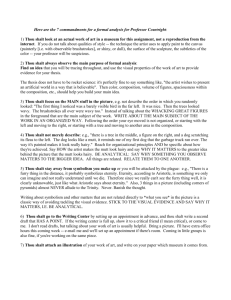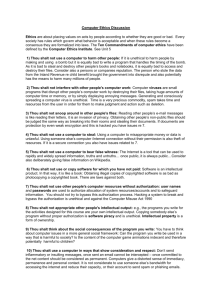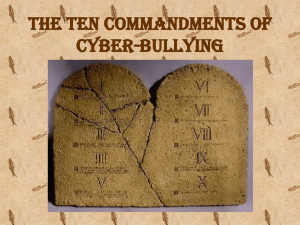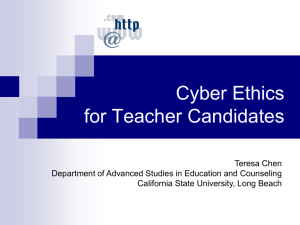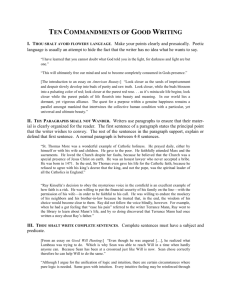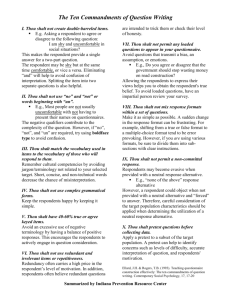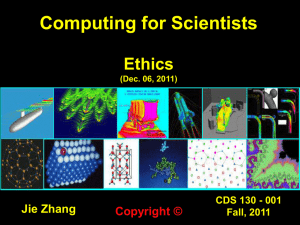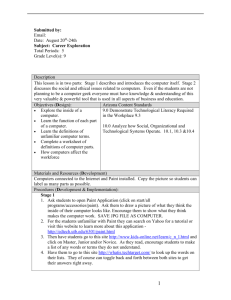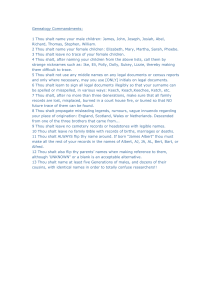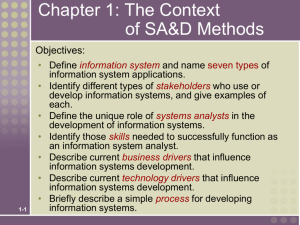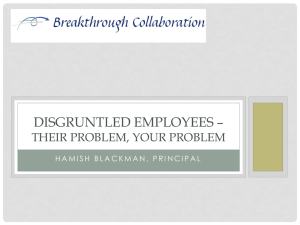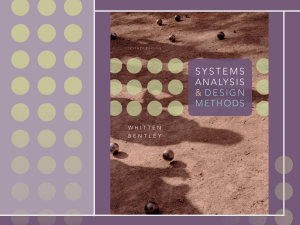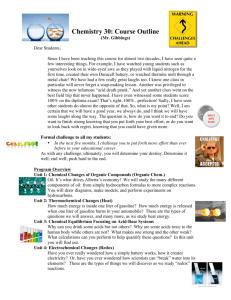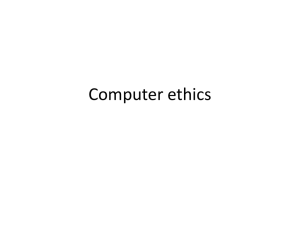Ten Commandments of Cyber Ethics
advertisement
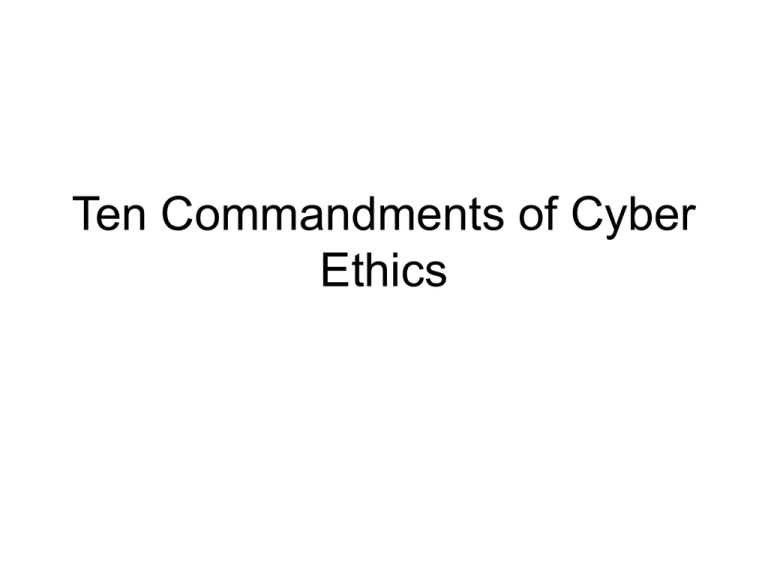
Ten Commandments of Cyber Ethics I. Thou shalt not use a computer to harm people • Be polite when you are sending messages to people. • Treat other people the way you would like to be treated. • Think before you hit the “send” command. The things you text or email could hurt someone. II. Thou shalt not interfere with other people’s computer work • If someone forgets to log out, log out for them. • Leave other people’s files alone. • Treat other people the way you would like to be treated. III. Thou shalt not snoop around in other people’s files • Be careful to “log out” of sites you have signed into. • Be a good Cyber Citizen: If someone forgets to log out, log out for them. IV. Thou shalt not use a computer to steal • Illegal gambling and fraud are examples of using a computer to steal. • Using your computer as place to store illegal or stolen information is wrong. • Using email or texting to plan crimes is wrong. V. Thou shalt not use a computer to bear false witness • “False witness” means telling lies about people. • Be considerate of other people’s feelings. Don’t spread rumors. VI. Thou shalt not use or copy software for which you have not paid • “Software” is a term for computer programs. Software allows you to do things on the computer. • Examples are video games, media players like iTunes, and word processing programs like MS Word. • “Open source” and “shareware” are free and OK to use. VII. Thou shalt not use other people’s computer resources without authorization • “Authorization” means permission. • “Computer resources” are people’s hardware (the computer) and software (the programs). • If it’s not yours, ASK first. VIII. Thou shalt not appropriate other people’s intellectual output • “Intellectual output” can be books, artwork, music, films, magazine articles, video games. • “Appropriate” means copying other people’s work and passing it off as your own. If you do use someone else’s work, cite your source. • I will cite my sources for this lesson at the very end. IX. Thou shalt think about the social consequences of the program you write • If you create a computer program that helps others steal or do anything against the law, you have done wrong. • Hacking is wrong. Examples of hacking are shutting down or defacing web sites and creating and sending viruses. X. Thou shalt use a computer in ways that show consideration and respect • The computer is a wonderful tool. • There are lots of positive ways to use a computer. Can you think of some? Works Cited • “Ten Commandments of Cyber Ethics.” The Cyber Citizen Partnership. 10 Jun. 2010 http://cybercitizenship.org/ethics/command ments.html • “What Is Cyber Crime?” The Cyber Citizen Partnership. 10 Jun. 2010 http://www.cybercitizenship.org/crime/crim e.html
